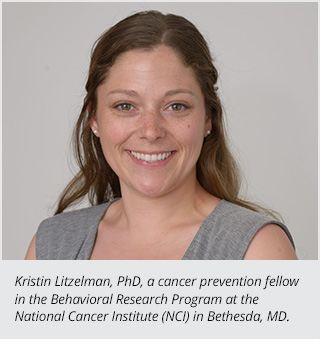Moods of Cancer Survivors’ Spouses Matter
Researchers investigated the impact of spouses’ moods on cancer survivors’ moods and well-being.

Investigators found that depressed mood and poor health-related quality of life among spouses may make the cancer survivors depressed too. On the other hand, when spouses were in better moods, cancer survivors were less likely to be depressed.
The study highlights the importance of incorporating spousal care into survivorship programs to improve patient outcomes.
This study was published in Cancer Epidemiology, Biomarkers & Prevention, a journal of the American Association for Cancer Research (AACR).
Previous studies have shown that being in a better mood is essential for cancer survivors because depressed mood is associated with poor health outcomes, including worse treatment adherence, decreased quality of life, and premature mortality.
Senior author of the study, Kristin Litzelman, PhD, a cancer prevention fellow in the Behavioral Research Program at the National Cancer Institute (NCI) in Bethesda, Maryland, said: “There are an estimated 14.5 million cancer survivors in the United States. Family members, especially spouses, often provide multiple types of support for cancer survivors, including attending medical appointments, helping with care, and sharing financial responsibilities. Understanding how cancer survivors and their families influence one another can provide directions in improving the health care they all receive and their outcomes in terms of health and well-being.”

In their study, Litzelman and her colleagues found that when the spouses of cancer survivors reported feeling depressed, cancer survivors were four times more likely to report depressed mood 11 months later. This effect was seen even when the researchers adjusted for confounding factors such as the survivors’ previously reported moods and demographic characteristics.
This association was especially strong in couples when the wife had cancer.
When spouses reported better health-related quality of life, survivors had a 30 percent decrease in depressed mood 11 months later.
“Our research highlights that spouses need to take care of themselves not just for their own sake, but also for the sake of the cancer survivor,” Litzelman noted. “Our findings also suggest that when caring for cancer survivors, clinicians may want to assess the well-being of spousal caregivers. Future research could test whether including caregivers in the survivorship care plan might help to improve outcomes for both caregivers and for cancer survivors.”
Litzelman and colleagues used data from 910 cancer patients and their spouses and from a comparison group of 910 couples without any kind of cancer-related health problem to investigate how each spouse’s quality of life or depressed mood at one time point was associated with his or her partner’s risk of depressed mood around 11 months later.
